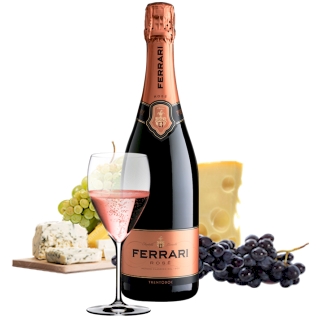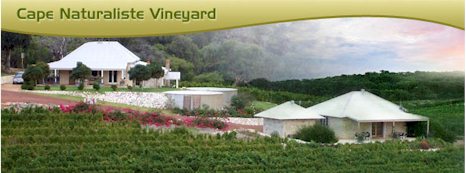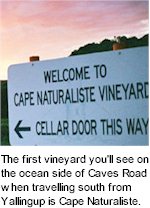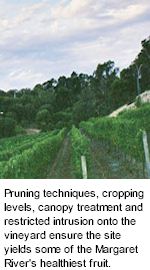


The site started life as a coach inn for travellers on the three day journey between Perth and Margaret River in the horse and buggy era. The property was later developed into the Thorn Hill Dairy, during which time whaling ships would sail into the sheltered waters of Smiths Beach to replenish with supplies grown in the valleys rich alluvial soil.

In 1970 the surrounding topography was discovered to be rich in mineral sands. A mining company purchased the land with the intention to mine the valley. Fortunately the government stepped in and declared it to be A grade zoning for national park. The property was finally acquired by Craig Brent-White who planted the first vines in 1997.
Vineyards are a natural choice for the area, as they preserve the beauty of the valley. The undulating topography is one of the contributing assets for drainage, an important factor to control the vigour of the vines. A bio-dynamic philosophy towards farming techniques includes the restoration of native plant bio-systems along the watercourses.
Sea based fertilisers such as Norwegian kelp and a fish head soup, undiluted and containing all essential element, are utilised in the vineyard to increase the microbiol life in the soil. The kelp is used as a foliant spray, it has an immediate effect on the health of the plants, and assists with the evenness of fruit set. Cover crops of; oats, rye grass, clovers, canola and barley have been rotated over the years together with the broad acre spreading of compost.

NPK (nitrogen, potassium and phosphorus) is a foliant application that uses fusion technology, it opens the pours in the leaves and the intake is instantaneous. Pruning techniques, cropping levels, canopy treatment and restricted intrusion onto the vineyard by vehicles and tractors are some of the measures taken to ensure this unique vineyard produces some of the Margaret River's cleanest and healthiest fruit.
The valley's rich variety of soil types are ideal for the growing of premium wine grapes. The maritime location cools the vines with clean air from the Roaring Forties, leading to wines of great character and depth. The quality of rain water after a good spring soak helps ease the thirst in the early part of the season and post harvest. Although some of the paddocks are dry grown due to the presence of underground springs, the intensity of flavours is further enhanced by fruit exposure, bunches per vine, shoot thinning and by discarding any bunches that don’t complete verasion.
Cape Naturaliste Reserve wines are barrel aged in French and American oak for 14 months. 2005 saw the first vintage barrel aged for 24 months. The object is to offer wines that are 3 to 4 years old upon release. Vintages are cellared at the winery post bottling, stored and aged for at least 12 months.
























